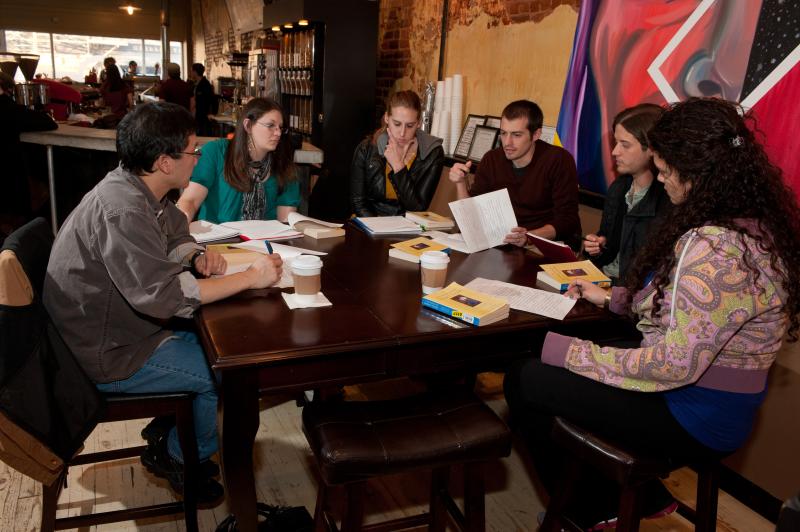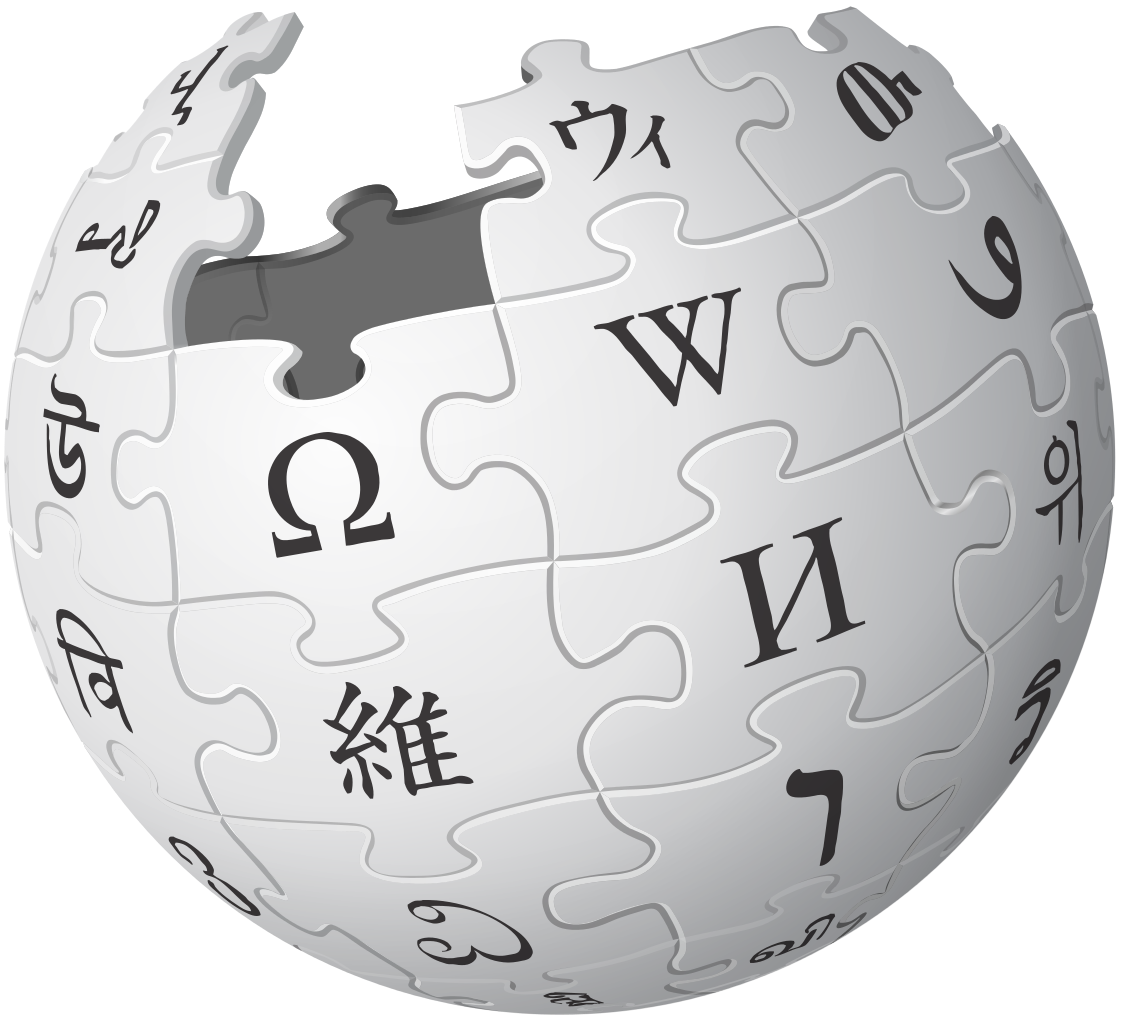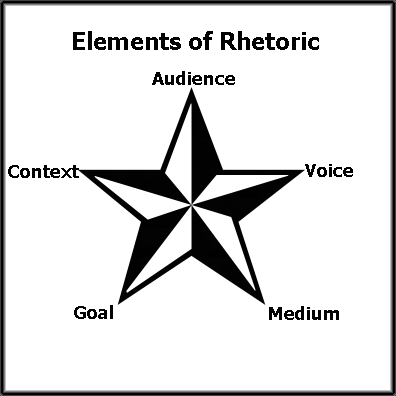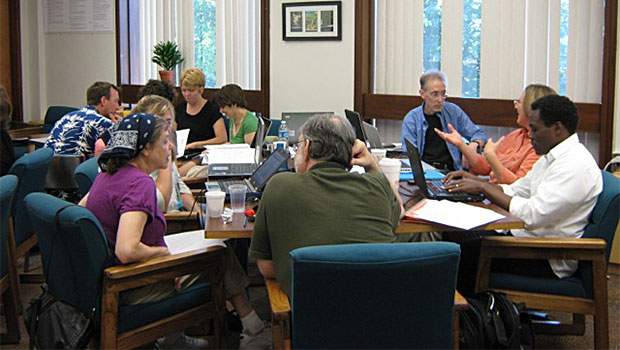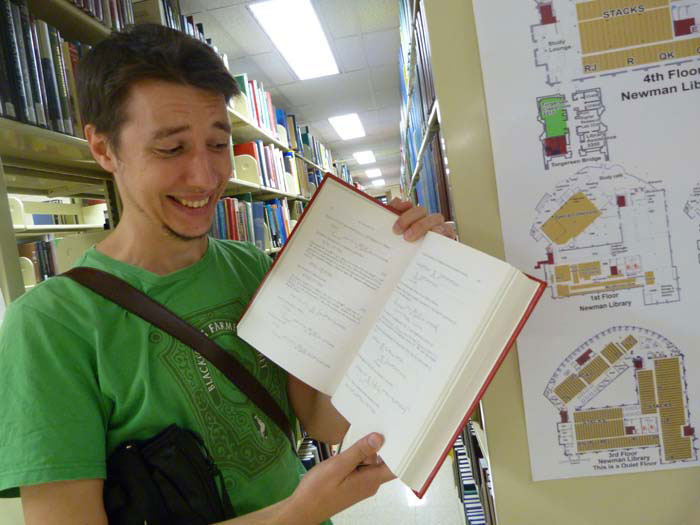by Erica Jacobs
Erica Jacobs teaches writing at George Mason University. She has a B.A., M.A., and Ph.D. from Columbia University and has published numerous articles in local newspapers, newsletters, and magazines.
When I received an invitation to apply to the Faculty Writing Retreat to take place during the 2014-2015 winter break, I recognized I couldn’t let the opportunity pass. It was a similar retreat sponsored by the English Department in 1978 that permanently changed my writing and teaching. That was near the beginning of my career, and 37 years later—near the end—it was time to take the body of work I’d written over the years for local newspapers and see if it would be publishable as a collection.

